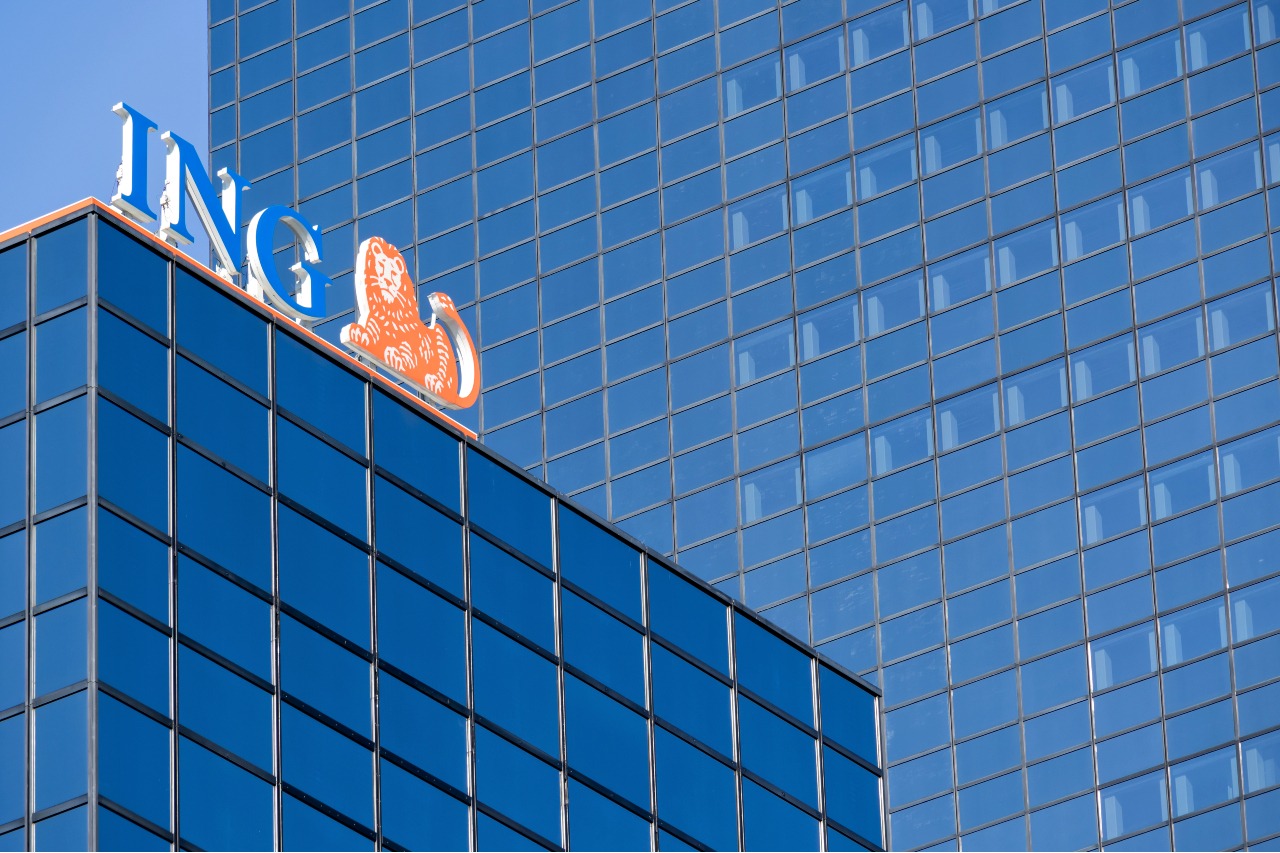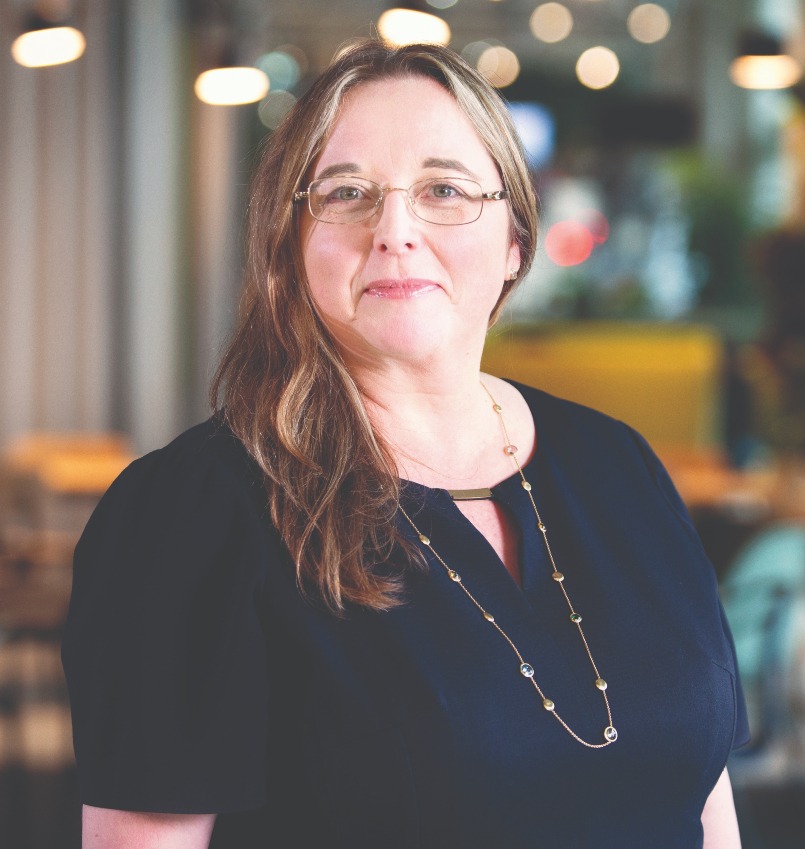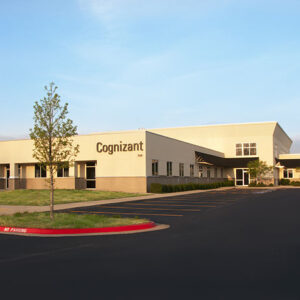
Covid-19 has transformed how companies manage their staff. In response to the pandemic, banks are developing more engaging work experiences for their employees. Lynette Eyb speaks to Ruth McGill, chief human resources officer at ING, about how the challenges of Covid-19 and working from home have accelerated the move towards digitalisation.
There can’t have been many worse times to take over as the head of HR for a multinational bank. It was 1 January, 2020, and a time bomb was ticking. Covid-19 was seeping its way into the public conscience. It would go on to affect every aspect of personal and professional life.
Ruth McGill, chief human resources officer (CHRO) for ING, brushes off references to her baptism of fire, but admits that the pandemic has been transformative for everyone – including seasoned HR professionals like herself. McGill climbed to the top of the ING ranks after five years as senior HR director in the company’s challenger and growth (C&G) markets section, having moved over from Standard Chartered Bank in 2015. Given the storm that lay ahead, appointing an insider to take over from outgoing ING CHRO Hein Knaapen was – in hindsight – a smart move.

After all, features of McGill’s earlier work included leveraging people metrics and improving succession planning and job rotation – areas that would go on to serve the company well throughout the pandemic. Choosing the hardest aspects of a difficult first year, McGill says that the coronavirus as a humanitarian disaster cannot be separated from its impact at a business level.
“First and foremost, Covid-19 is a human tragedy that has affected all of us and changed our world forever. It has disrupted societies and has had a huge impact on ING employees and customers everywhere,” she says.
“To continue serving our customers through the crisis, we relied on our ability to quickly switch to a work-from-home model. In a very short time, we managed to put the necessary infrastructure and processes in place to support up to around 80% of our global workforce at home. It was a huge achievement.”
McGill says keeping all 57,000 ING employees safe, healthy and supported remains a top priority. Above all, HR is about people – and managing illness and personal loss has been a challenge. “From an employee perspective, I think there is now a finer line between personal and professional life,” she says.
“Our people have all been impacted by the pandemic – everybody has. As an employer, we need to listen to our employees and support them. When employees are struggling in their personal lives, we always aim to be understanding, flexible and compassionate. Managers have a crucial role here. That’s why we’ve offered all our managers and leaders support programmes to help them to help their team members.”
Even with so much changing around her, though, McGill says her vision of HR has not wavered. It has, however, driven home the importance of being able to adapt to change. “Putting into place a new digital way of working was essential at the beginning of the crisis, for example,” she emphasises.
“The world is changing and we’re operating in a really uncertain environment. It’s important to balance short-term views with the medium to long-term views. We need to focus on priorities and the tasks at hand, but also think ahead on long-term issues such as talent management and building the capabilities of our people.”
Adapting systems in a crisis
As the Covid crisis worsened and weeks of restrictions turned into months, ING looked for new ways to engage employees and help safeguard their well-being. “Many colleagues had their own individual struggles – caring for children or sick relatives, isolation and loneliness, worries about illness or the wider impact of the pandemic,” says McGill.
“From a work perspective, they missed seeing their colleagues and collaborating in person. We turned our focus on ways to support them through difficult times and reduce their stress levels where possible. Local countries came up with a range of creative solutions. These varied from tips and tricks on nutrition and how to stay fit, to online well-being coaches, psychological support, tips for dealing with stress and workload, and advice to take a holiday.”
McGill says ING has regularly monitored employee welfare throughout the pandemic to sharpen its focus on support. So-called ‘Quick Pulse’ surveys are used to quiz around 42,000 employees on their individual well-being – and they will continue after the pandemic finally ends. ING also introduced a digital onboarding tool to help make new employees feel welcome, despite their physical distance from their teams.
The WFH revolution
ING hasn’t been alone in needing to adopt innovative HR systems to navigate the Covid firestorm. Indeed, the pandemic has sparked a revolution in how businesses large and small manage staff – both on site and off. In February, for instance, HSBC chief executive Noel Quinn announced a strategy update focused on slashing office space by 40% and moving permanently to a more agile workforce.
Standard Chartered, meanwhile, signed a deal with real estate solutions provider IWG to provide the bank’s staff with access to 3,500 flexible workspaces worldwide. A UK Institute of Directors survey of more than 1,000 firms found that 74% of bosses saw a continued role for working from home. Everyone agrees: employee management as we knew it is gone forever.
Asked whether this revolution had reshaped her thinking as an HR manager, McGill cites her own situation. “In the last 20 years of my career I travelled non-stop. I am pleasantly surprised by how much can be done online. I would have never worked from home, but now, I don’t think I will fully work from the office again. What I’ve learned is that you have to go with it. You can plan, but you have to be flexible and deal with the unexpected.”
McGill adds that working from home is a balancing act with unique obstacles. “My main challenges personally are managing all the internet traffic when I’m online, having a clear cut-off between home and work, and trying to stay connected to people, despite working from home,” she says. “I’m an extrovert, so not being able to have face-to-face talks is hard. Instead, I’m having a lot of one-to-one calls. You need to ask, ‘how are you?’ in three different ways to find out how someone is really doing. It’s critical to take the time to make a personal connection, even if it’s virtual.”
Post-Covid, McGill suggests that working from home will become a permanent fixture at ING, with the company predicting that its employees will spend around half their time at home and half in the office. “This is not set in stone but is an indication of our current thinking and our starting point for the post-Covid ‘new normal’,” she says.
“We’re looking to create a new way of working where we look to balance the advantages of working from home with the advantages of working from the office. We are taking a measured step-by-step approach to this, testing and evaluating as we progress.”
The impact of digitalisation on employees
Digitalisation will prove crucial to this transition – and McGill agrees that ING’s pre-pandemic agility and strong online focus gave the company a head start in dealing with Covid from both a customer and employee perspective. “In the current environment, our digital business model continues to be a clear advantage,” she says.
“Our mobile-first digital strategy has been given a boost by the accelerated digitalisation resulting from the coronavirus pandemic. To keep pace with the growing demand for mobile banking, we’re now taking steps to build on the foundation we’ve laid over the past years and further improve the digital customer experience.”
Internally, McGill continues, digitalising systems will also remain a primary focus over the months and years ahead. “Our ambition as an HR function is very much geared towards digital working and data – we haven’t needed to adjust our strategy; we’ve simply accelerated our current plans.”
To that end, employees are encouraged to think creatively, exploring ways of working faster, smarter and more efficiently. As so often these days, the word ‘innovation’ is used liberally. Innovation bootcamps, innovation ambassadors and events including a recent ‘Innovation Summit’ are all being used to promote new thinking.
Training also now takes place largely online. A new digital platform combines all internal and external learning resources into one place. There are also digital solutions for developing international talent to compensate for the experiences employees would have gained from working abroad.
“For our leaders and managers, we offer one-to-one coaching on remote leadership,” explains McGill. “Part of this focuses on encouraging them to steer on output rather than time spent. Our leadership training programme is now fully digitalised – and it’s been really well received.”
Ultimately, however, it’s in the realm of data that McGill sees the most scope for growth – particularly to create a more personalised employee experience. “Data is a crucial part of our company strategy and our HR strategy,” she says. “But in order to become
a truly data-driven bank and really harness the benefits, we all need to increase our knowledge and capabilities around data and its usage.”
To this end, data fluency features alongside customer experience, leadership, cybersecurity, non-financial risk management and operations management as one of ING’s ‘Big 6’ strategy capabilities, with a special ‘academy’ established to help employees become data-fluent irrespective of where they sit in the organisation.
McGill says that throughout the pandemic, both new and old systems at her employer have continued to deliver. More importantly, she says that the bank’s people – arguably ING’s most precious resources – have performed brilliantly under extraordinary circumstances.
“Colleagues are engaged and focused, leaders have stepped up to the challenges, managers have managed their teams with dedication and flexibility,” she says. “We’ve really worked hard and achieved a lot. We’ve been there for our customers and for our employees. I’m really proud of that.”
This article originally appeared in Future Banking summer 2021.






